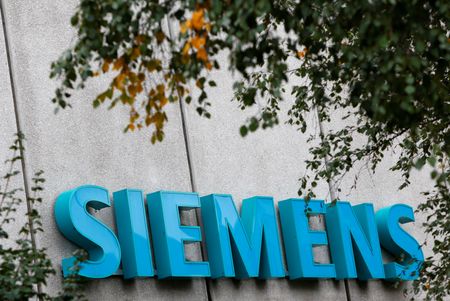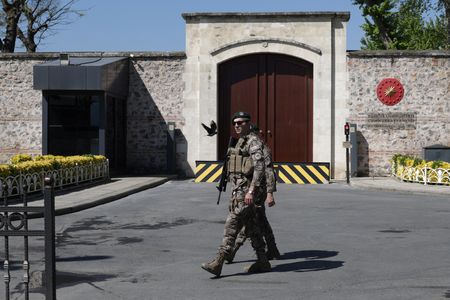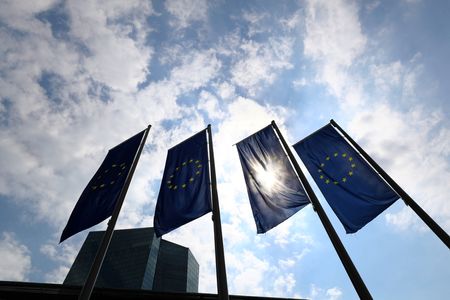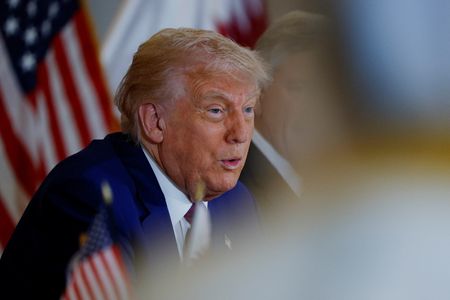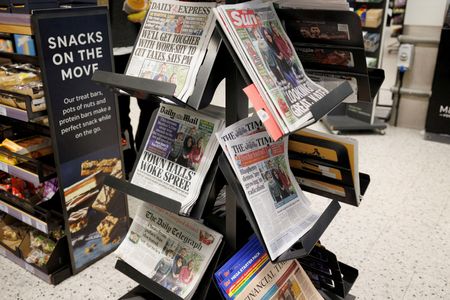By John Revill
ZURICH (Reuters) – Siemens expects only a small impact on profit this year from the ramp up in global tariffs, the German engineering group said on Thursday, after it reported better than expected second quarter results.
The technology company, whose products include factory automation software, controllers and trains, has a global production footprint which reduced the negative effect of trade barriers, and could raise prices again if necessary, executives said.
Still, uncertainty among customers remained high, a situation likely to continue despite the United States and China announcing a truce in their trade war on Monday.
“Based on our assessment and including mitigating actions, we foresee a limited profit impact,” said Chief Executive Roland Busch, in relation to tariffs.
Siemens expects a potential high double-digit to low three-digit million euro impact on its full-year profit as a result of tariffs.
The wider knock-on effects that uncertainty will have on customer behaviour, on global demand and on the overall economy were difficult to predict, Busch said.
Siemens was reacting via changing its procurement, adjusting prices and diversifying its production capacities where necessary, he added.
The company has 150 factories globally, including 28 in the United States, 23 in China and 12 in India, which reduced the impact of trade barriers.
The company would not alter its production footprint, nor was it keen to raise prices again after some adjustments earlier this year to counter the impact of tariffs.
“We’re going to act with a slow hand,” said Chief Financial Officer Ralf Thomas. “We don’t see any triggering event at the moment.”
Despite the uncertainty, Siemens confirmed its guidance for sales to increase by between 3% and 7% in its financial year to the end of September.
The company, which competes with France’s Schneider Electric and Switzerland’s ABB, said its industrial profit rose 29% to 3.24 billion euros ($3.63 billion) in the three months to the end of March, beating analysts’ consensus forecast of 2.75 billion euros.
Sales rose 7% to 19.76 billion euros, ahead of forecasts, while orders increased 10%.
($1 = 0.8931 euros)
(Reporting by John Revill. Editing by Rachel More and Mark Potter)

